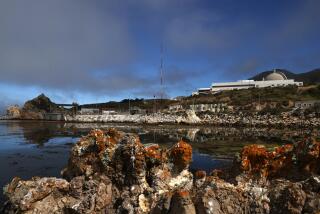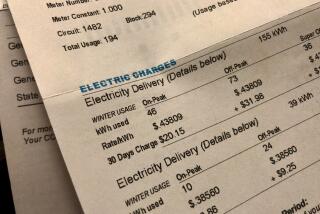George Sladoje, Energy Executive
- Share via
George Sladoje,
Energy Executive
As chief executive of the now-defunct California Power Exchange, the state’s primary electricity market, George Sladoje was at ground zero of California’s energy crisis. A former Chicago Board of Trade and Chicago Stock Exchange executive, Sladoje wanted to build a fluid market where buyers and sellers of electricity would get the best prices for their product and the savings would pass down to consumers. Instead, the former accountant found himself in the biggest crisis of his career.
*
No doubt, 2001 was easily the most difficult year in the nearly 25 years of my career. As we ended 2000, the CalPX had expansion plans, we were going to open markets in other parts of the nation.
But on Jan. 18, we experienced the first default in our market with Southern California Edison, and that was followed by defaults from the utilities for the rest of the month.
We quit trading on Jan. 31. That was a very difficult thing for us to do because we had gone from being an optimistic, new and innovative enterprise just a few months before going out of business. On March 9 we filed for bankruptcy. At the end of 2000, we had 200 people working at our offices in Alhambra and Pasadena and now we are down to just 12.
It is almost like the energy industry has come full circle this year. We started out with extremely high prices, shortages and dire predictions about what was going to occur in the electricity markets.
By spring things began to get better. Natural gas prices came down dramatically, the outages of key generating plants didn’t occur. We had a cool summer with no blackouts and now we find ourselves with excessive power on some days and wholesale prices comparable to the rest of the country.
I don’t know what’s been more earthshaking, the Enron bankruptcy or California’s energy crisis. It remains to be seen which will have a bigger effect.
Certainly, the California situation caused much consternation, political and regulatory activity. And it ultimately resulted in higher prices for our retail customers and contributed to a slowdown in the march toward deregulation all over the country.
Now the Enron situation on the other hand.... It’s not clear what will happen as the result of that. Besides, from some of the credit downgrades of the merchant power companies, we are not seeing a lot of immediate fallout in the energy industry.
But it also will contribute to the slowdown in deregulation. I think there was already a big trend toward better disclosure in accounting; this may speed it up.
I think 2002 will be another transition year for the industry in which we attempt to move the entire market toward the promise that deregulation holds.
It will be slow because of Enron and what has gone on in California. A lot depends on the weather and environmental conditions, but I think it will be relatively calm.
I have no idea what I will be doing next year. I am probably out of here in a couple of weeks as part of bankruptcy reorganization.
*
As told to Jerry Hirsch
More to Read
Inside the business of entertainment
The Wide Shot brings you news, analysis and insights on everything from streaming wars to production — and what it all means for the future.
You may occasionally receive promotional content from the Los Angeles Times.










